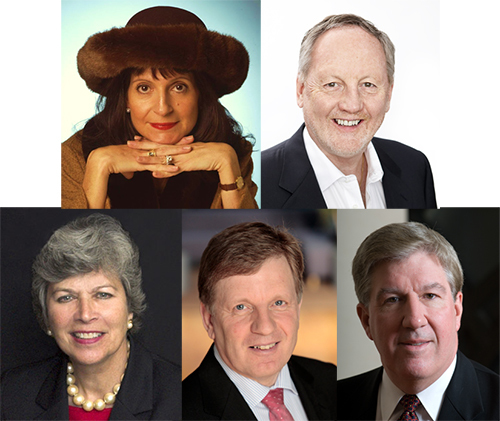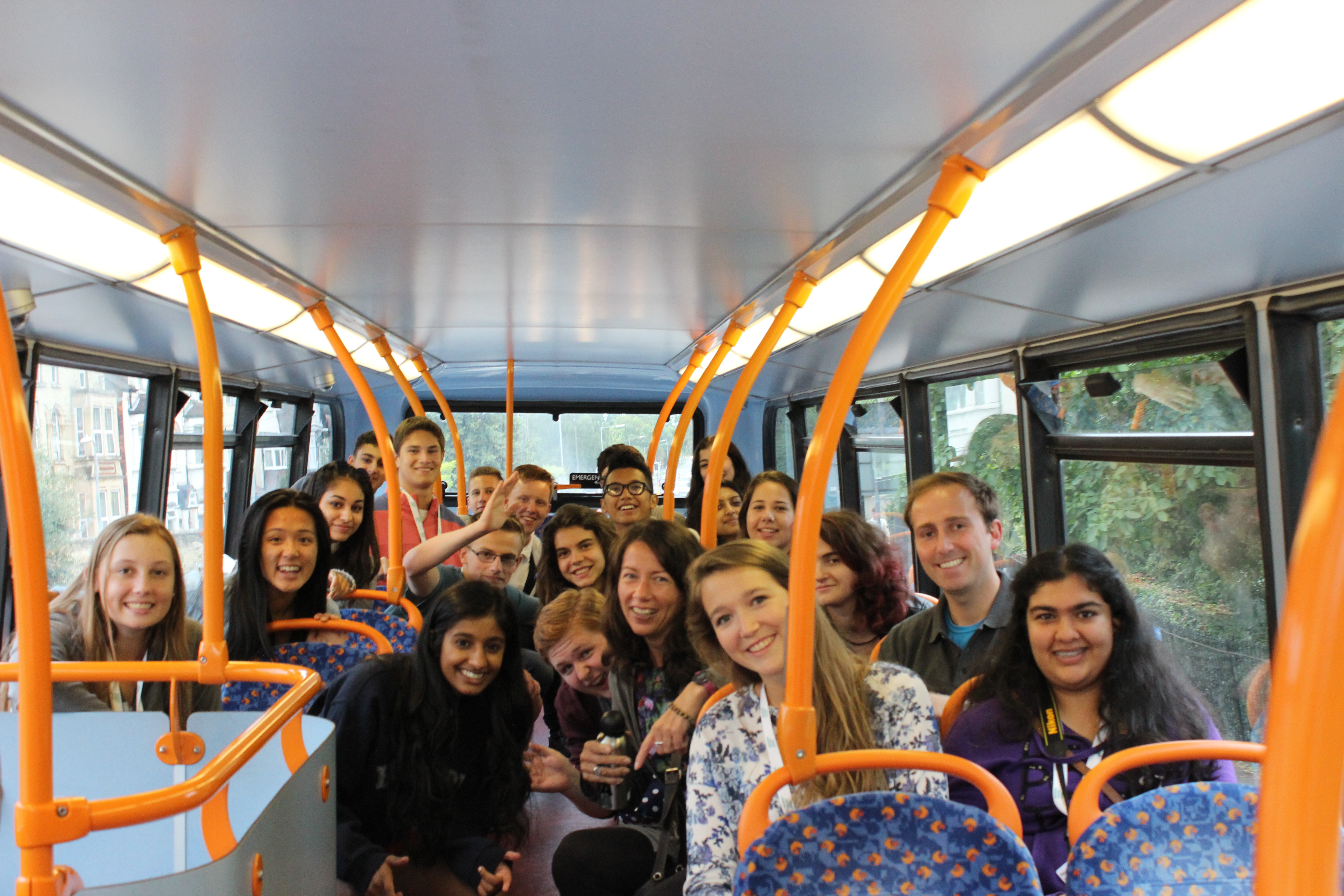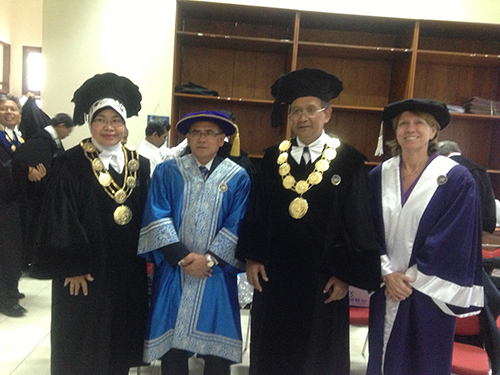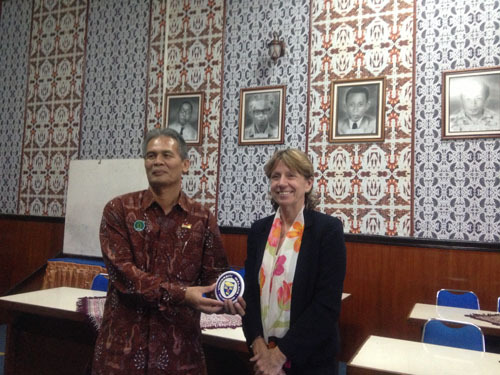
How do highly effective leaders lift their organizations to extraordinary levels of achievement? How do you they lead their people well and subsequently bring about change on a global scale? Andy Hargreaves, Alan Boyle and Alma Harris conducted an extensive seven-year global research study that focused on fifteen high-performing organizations in business, sports and education to find out the answers to these questions.
Prepare to be inspired by their extensive research and their conclusions, which are the subject of Liderança Uplifting: Como Organizações, Teams and Communities Raise Performance, a new book that Sir Ken Robinson predicts will “overturn many conventional assumptions about leadership.” It’s a book I couldn’t put down and consider it essential reading for those who think that effective leadership is fundamental to solving our global, national and local challenges. What lessons can we learn from this book and what do respected leaders from the worlds of politics, education and business believe about great leadership in our evolving 21st century world?
I invited Esko Aho (former Finnish Prime Minister), Jeff Beard (Founder and Chairman of Global Study Pass and former Director General of the International Baccalaureate Organization), Michael completa (Canadian educational researcher, author and former Dean of the Ontario Institute for Studies in Education), and Frances Strickland (former First Lady of Ohio and American educator) to share their perspectives.
What are the 21st century skills essential for future leaders?
Jeff Beard: I’ve spoken for some time about the trends I was observing in international education and how more students, particularly in the East, were searching for study abroad opportunities in the West so they could get a “leg up” in the competition for places with the best universities and employers. Cada vez mais, both are saying that they seek young people exhibiting both 21st century and global citizenship skills.
While there are many definitions out there regarding 21st century skills, I guess I identify most with the Assessment & Teaching of 21st-Century Skills definition, which was based on some pretty solid research. It emphasizes learning and innovation skills that deal with ways of thinking and working (isto é. criatividade, pensamento crítico, resolução de problemas, decision-making coupled with communication & collaboration skills); tools for working (isto é. informação & communications technology and information literacy); and skills for living in today’s world (global citizenship and lifelong learning, since many of the career fields for today’s young people haven’t yet been invented).
For our schools, this will not be a matter of putting more emphasis on the core curriculum. Criatividade, ingenuity, and innovation are the keys to success in today’s global economy. To prepare young people for work and life in the 21st century, our teachers must also cultivate students’ criatividade.

If you were selecting an education reform leader for any country, what attributes and skills would you be looking for in him/her?
Michael completa:
1. An education reform leader must have a strong desire to raise the bar and close the gap for all students, with the knowledge and commitment that he has to build ownership with administrators and teachers to do this.
2. The capacity to build a cohesive central team that works together to embrace and implement point 1.
3. A commitment to working with businesses, parents and community groups to understand and support the agenda.
4. A developmental mind set for capacity building strategies, including teacher appraisal, instructional development, and the student achievement agenda.
5. A commitment to measuring and furthering student progress, including a capacity to understand and use data.
What will 21st century leaders need to understand about the short and long term issues in regard to managing technology?
Esko Aho: There are some obvious obstacles to digitization and many of them are connected with leadership.
New digital solutions cannot be created without risk. That’s why venture funding for digital businesses is critical. In addition to money, the right kinds of attitude are needed as well. Lack of long-term incentives and the requirements of maximizing shareholder value are the main obstacles to risk-taking in the private sector. On the public side, low or zero acceptance of failure limits the room for innovation.
Entertainment-driven services are rather easy to be introduced by private companies. The market is there and the major challenge is to create demand for new applications. In the fields of education and health care, major resources are coming from national and local governments. The existing model of collaboration between the public and private sectors limits innovation in sectors that are substantially publicly funded.
In order to get education or health care to be digitized, you need systemic reforms. Access to technologies is only one critical element. New types of talents and skills are needed. The regulatory environment has to be changed. Administrative silos are major obstacles to get systemic reforms to take place.


To whom would you like to give a copy of the book, Liderança Uplifting, e por que?
Frances Strickland: Secretary of Education, Arne Duncan, because I believe he has tried to be an uplifting leader despite the current pushback to his efforts. He rightly identified the failure to deal with the intransigent problems in our low-income schools where little collaboration has led to a lack of trust — an indispensable ingredient in leadership. If he had followed the principles of Liderança Uplifting and built a healthy balance between competition (empurrar) e colaboração (pull), he would have worked with the AFT and NEA rather than against them. He would have shown appreciation of the assets or strengths within public education and reminded us of America’s proud educational accomplishments. Most of all, he would recognize the damage to intrinsic motivation when excessive pushing strategies suggest that performance is more about numbers than relationships and learning.
Can you describe one case study in the book that resonated strongly with you and explain why?
Frances Strickland: I was caught by the Dogfish Head Craft Brewery study because of a concern I’ve had about public education since the 1980’s. Dogfish was about creativity in a standardized and uniform world — a world like public education where imaginative educators are suffocated by excessive external controls. The Dogfish founder, Sam Calagione, had the opposite problem. In the creative process, he was responsible and professional. He researched, built on past knowledge, experimented, grew in small steps, evaluated, and was resourceful in his underfunded brewery. But while his quirky, creative style promoted a business culture that was “diversão” e “funk”, it also created chaos and inefficiency. He lacked the disciplined organizational skills needed to stabilize his business structure as he free-lanced. With nudging, he hired an organizational person to complement him. Education has the problem in reverse. The imbalance of too much structure and not enough creativity is dragging the system down.

Do you agree that “a great education is about being able to drop a student anywhere in the world and know that he/she will not only survive but will thrive”?
Jeff Beard: Absolutamente! International-mindedness, cultural awareness/sensitivity and critical thinking skills are the tickets for future success in this increasingly flat world. Tom Friedman has, for years, written about how the impact of technology and information is allowing work to be done anywhere in the world better/cheaper/faster than it could be done in the western world.
Assim, traditional teaching methods must now give way to new methods such that our teachers can help students develop these critical thinking and creativity skills. The same “flat world” that is transforming the workplace is also transforming the way in which today’s students learn. Equipping students with the skills necessary to achieve their full potential, participate in an increasingly interconnected global economy, and ultimately convert better jobs into better lives is now a central preoccupation of policy makers around the world.
In today’s knowledge-based global economy, jobs will go, more and more, to the best-educated, well-rounded workforce. Parents are now realizing that their children aren’t competing only with their peers within their local district, or state — they are competing with children across the world. Portanto, today’s students need to find that extra unique value contribution that makes them stand out, and thrive, regardless of their field of employment and wherever they may be located.
If you were selecting a future leader of the U.S.A., what attributes and skills would you be looking for in him or her?
Frances Strickland: I want the next president to be loaded with soft skills — people oriented, colaborativa, criador, and focused on the long term as well as the short term. I want that person to have a clear vision and a positive set of values; I want to hear them communicated over and over. I want that person to demonstrate community by going to the front lines of suffering and engaging the affected in all efforts to find solutions. Em resumo, I want a leader with the values usually associated with women -including the desire for peace. The interest in Hillary Clinton and Elizabeth Warren as presidential candidates suggests that our country may be tiring of competition and force as its dominating values. Many are concerned about a badly divided country and want our next leader to do something that brings us together. The adoption of the principles of Uplifting Leadership would help do just that.
For other articles on Future Jobs: Trabalhos futuros
Para mais informações sobre:
Liderança Uplifting
Esko Aho
Jeff Beard
Michael completa
Frances Strickland

Inferior fileira esquerda para a direita: Frances Strickland, Esko Aho, Jeffrey Beard
Photos of the artworks are courtesy of renowned Finnish Artist Niko Luoma from his “Variations on a Standard of Space” série (2013-14).The starting idea for those works are the three basic solids: the cube, the sphere and the cone, which are the basis for everything depicted in the world, according to Paul Cezanne.
Junte-se a mim e líderes de renome mundial, incluindo Sir Michael Barber (Reino Unido), Dr. Michael Bloco (EUA), Dr. Leon Botstein (EUA), Professor Clay Christensen (EUA), Dr. Linda, Darling-Hammond (EUA), Dr. MadhavChavan (Índia), Professor Michael Fullan (Canadá), Professor Howard Gardner (EUA), Professor Andy Hargreaves (EUA), Professor Yvonne Hellman (Holanda), Professor Kristin Helstad (Noruega), Jean Hendrickson (EUA), Professor Rose Hipkins (Nova Zelândia), Professor Cornelia Hoogland (Canadá), Honrosa Jeff Johnson (Canadá), Senhora. Chantal Kaufmann (Bélgica), Dr. EijaKauppinen (Finlândia), Secretário TapioKosunen Estado (Finlândia), Professor Dominique Lafontaine (Bélgica), Professor Hugh Lauder (Reino Unido), Professor Ben Levin (Canadá), Senhor Ken Macdonald (Reino Unido), Professor Barry McGaw (Austrália), Shiv Nadar (Índia), Professor R. Natarajan (Índia), Dr. PAK NG (Cingapura), Dr. Denise Papa (US), Sridhar Rajagopalan (Índia), Dr. Diane Ravitch (EUA), Richard Wilson Riley (EUA), Sir Ken Robinson (Reino Unido), Professor PasiSahlberg (Finlândia), Professor Manabu Sato (Japão), Andreas Schleicher (PISA, OCDE), Dr. Anthony Seldon (Reino Unido), Dr. David Shaffer (EUA), Dr. Kirsten Immersive Are (Noruega), Chanceler Stephen Spahn (EUA), Yves Theze (LyceeFrancais EUA), Professor Charles Ungerleider (Canadá), Professor Tony Wagner (EUA), Sir David Watson (Reino Unido), Professor Dylan Wiliam (Reino Unido), Dr. Mark Wormald (Reino Unido), Professor Theo Wubbels (Holanda), Professor Michael Young (Reino Unido), e Professor Minxuan Zhang (China) como eles exploram as grandes questões da educação imagem que todas as nações enfrentam hoje. A Pesquisa Global para Educação Comunitária Página
C. M. Rubin é o autor de duas séries on-line lido pelo qual ela recebeu uma 2011 Upton Sinclair prêmio, “A Pesquisa Global para a Educação” e “Como vamos Leia?” Ela também é autora de três livros mais vendidos, Incluindo The Real Alice no País das Maravilhas, é o editor de CMRubinWorld, e é um Disruptor Fundação Fellow.






Comentários Recentes